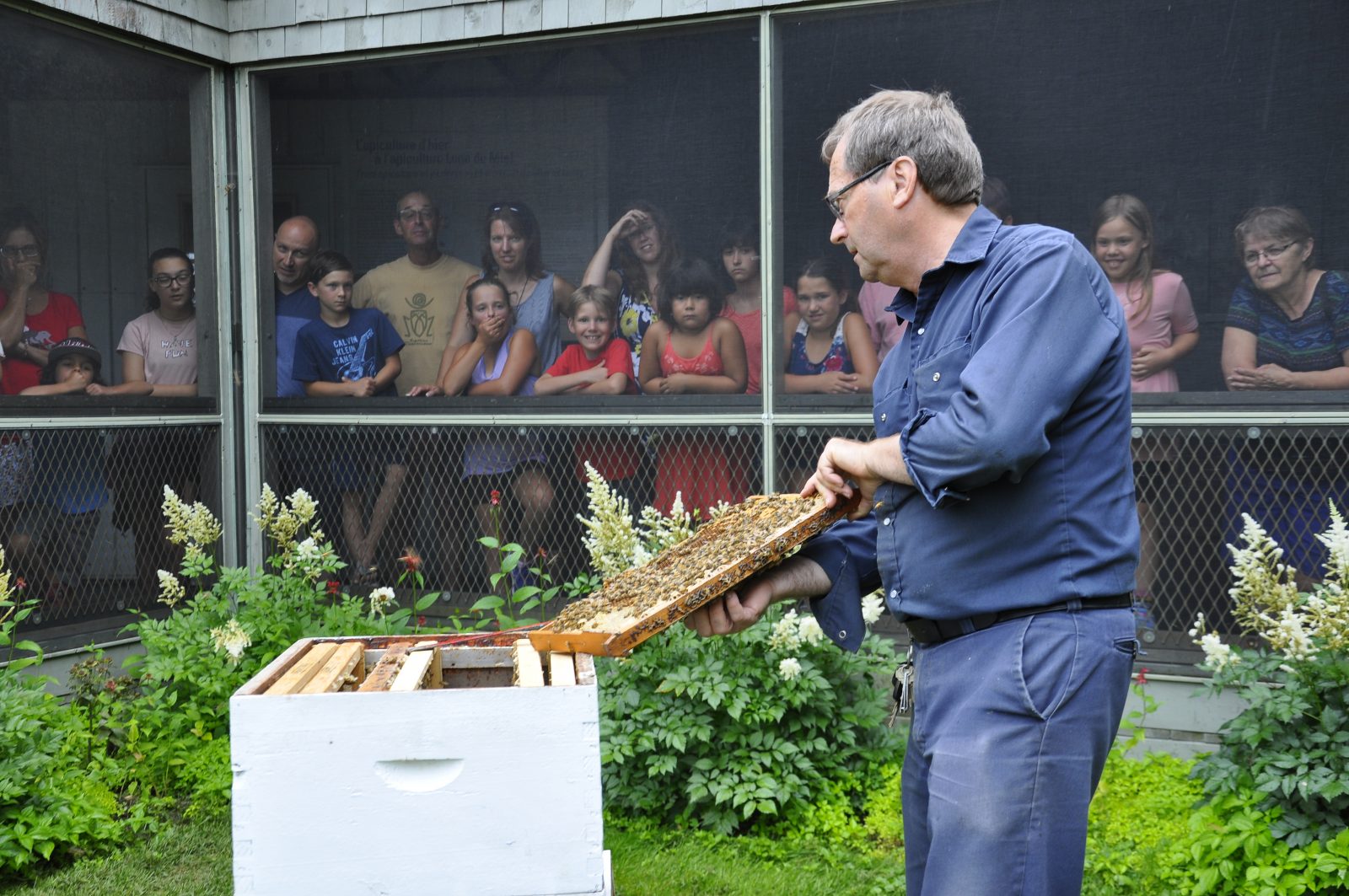By Michael Boriero
Local Journalism Initiative
Quebec beekeepers are feeling the sting this year, after a rough winter season and sporadic weather patterns took a toll on bee hives across the province.
When Lune de Miel owner Carole Huppé opened her hives this spring, she discovered 50 per cent of her honeybees had died off over the winter. She told The Record that varroa mites are the prime suspect for the massive hit, but, she added, it also has to do with climate change.
“It’s a type of parasite that lives on the bee’s body, and with climate change, and last year, the warm season was long. We had a hot spring, and a hot fall, so it was a longer than usual warm season, which gave more life to the varroa,” Huppé said in a phone interview on Friday.
According to Huppé, the parasites thrive in warmer weather, so they were able to survive for a longer period of time last year, which then impacted bee hives when they were stored away for the winter. Varroa have always been a problem, she continued, but this year is different.
The problem now, Huppé explained, is they just suffered significant financial losses. Her family business in Sherbrooke is out thousands of bees, and, she added, there is a shortage of available bees on the market. And the situation isn’t any better outside of Quebec, either.
Huppé said the provincial beekeepers federation, Les Apiculteurs et Apicultrices du Québec, plan to hold a press conference to address the alarming losses and provide an overview of the situation. Miel Pur Délice co-owner Lynda Hébert was also dealt a heavy blow.
Hébert has 348 hives at her beekeeping operation in Coaticook. She told The Record that she lost about 130 of them when she opened them up for the spring. Like Huppé, Hébert said it has a lot to do with varroa, but she also blames climate change and increased humidity.
With the losses that she suffered this year, Hébert added that it will take time to build new hives. It takes about two to three weeks before a hive starts producing honey, she explained. Although the hive losses were significant, she said she’ll be fine for the summer season.
“Well it hasn’t affected us directly yet. We’ve accumulated honey products over the years that don’t expire, so we have a reserve. But if this goes on for five years, and we don’t know what the weather will be like in the future, eventually we’ll have quantity issues,” said Hébert.
She’s keeping her fingers crossed for a smooth summer, but she also understands that the weather can be fickle. If it stays at 25 degrees, the bees are fine, it’s when the weather suddenly drops, or the humidity increases, that problems begin to arise, she explained.
“These are things that are out of our control. They’re affected by external factors. We try our best with the situation that we have but we have no control over this,” said Hébert, adding that she believes Quebecers will start to experience severe dry summers in the near future.
Subscribe to The Record for the full story and more.






